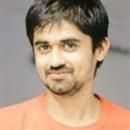Minimum order quantity is a hindrance for small business
Herbal fab is certified by Global Organic Textile Standard (GOTS). It offers GOTS certified dyed/printed fabrics in organic cotton knits/wovens as per custom requirements, and other eco-friendly fabrics like khadi (handspun and handwoven fabric), non violent silk/peace silk, organic denim, wood based fibres, and special blended fabrics. The company is always in search of sustainable textiles. Kunal Balar, owner of Herbal fab, talks to Fibre2Fashion about the challenges in the eco-friendly clothing chain.
What is your growth story since the inception?
The initial 4-5 years were very slow, as it was more of research and understanding the complexities and problems of the industry which is quite different from the normal textiles industry.
Herbal fab is established with a vision to make a change and create impact of eco friendly textiles, how far has it been successful in achieving the objectives?
It's been a slow growth, but we are happy with our growth lately, though there still is a long way to go. We want Herbal Fab to become a one-stop shop for organic cotton and other sustainable fabrics, for all clients irrespective of their size. Second, we are working hard to promote the khadi and handloom industry, as we aim to impact the lives of these amazing skillful weavers in the coming years. Their art is dying, and they are migrating to cities for laborious jobs away from their families.
The value chain of eco-friendly clothing has been one of the biggest challenges, how do you manage it?
Yes, the minimum order quantity (MOQ) is a major issue. Most people in the organic field are small and unable to meet the industry MOQs, and on the other hand you can't compromise on the quality just because you are making in small quantities and it's organic. At Herbal Fab, we are trying to overcome that to some extent by clubbing orders, developing new fabrics at our own risk and stocking them, so that buyers have option of taking smaller quantities without the burden of MOQs.
How is the market for organic cotton in India and abroad?
It's mainly exports. In India, it's still on a very small scale, but you can see the growing awareness for the last year or two.
What percentage of your sales is from the Diaspora - the Indian population outside the country?
We have an export-to-domestic consumption ratio of approximately 75:25.
Tell us about your dyeing methods.
We offer two kinds of processing fabrics. (i) Natural dyeing: Dyeing/printing is done using natural dyes like herbs, flowers, roots, fruits, etc. There is a fix shade chart here, and one has to play among those shades only. (ii) GOTS Certified low impact dyeing / printing: Works with pantones, also referred as organic dyeing by many.
What are the opportunities and challenges for this business? Please share if any expansion in capacity
Everyone around the world is aware of the pollution created by the textiles Industry and the chemicals involved. So, it has a great scope going ahead, but may not become a mass product. The complexity of the textiles chain in organic is a major challenge, which is also one of the factors affecting prices.
Who are your competitors in India?
We do not take anyone in this field as competitors. In fact, we are happy if there are more people entering this field.
Which brands & retailers are you currently associated with?
We are associated with lot of designers, mid-scale brands / companies, and baby clothing companies.
Which product category sells the most and in which price range?
We are able to sell more organic cotton fabrics ranging at $4-7 per metre.
What are the specific initiatives of marketing & promotion of products taken by Herbal fab?
We are getting associated with ethical platforms and marketing companies in India and abroad.
What about B2C segment, do you target online e-commerce portals and channel for direct sales?
No, as of now we are not having any end-product under our brand. The clothes we produce are all custom-made and as far as fabrics are concerned, we are not selling online.
How easy or hard is it to sell organic clothing which has a bigger price tag?
As of now, we are not selling any product under our brand.
What led you think about an idea of offering customised outfits?
With time we realised that a lot of our buyers wanted sewing help too and not just fabrics, as stitching in their countries is quite expensive. For a foreign customer establishing trusted contacts with different suppliers is challenging, rather than having one supplier offering the complete package.
Is there any certification process that the suppliers you deal with follow to guarantee that the raw material is indeed organic through the value chain?
Yes, our set-ups are GOTS-certified.
What percentage of your profit is ploughed back into R&D?
There is no percentage criterion, but we are always in search of developing new fabrics and introducing new fibres.
What new is in the pipeline?
We are continuously trying to introduce more and more organic cotton wovens / knits so that people can get different varieties, at one place. At the same time, we are also working on khadi and hand-woven fabrics.
How was your company's performance in the fiscal 2017-18 and also tell us about your future plans.
It has been good.(RR)

